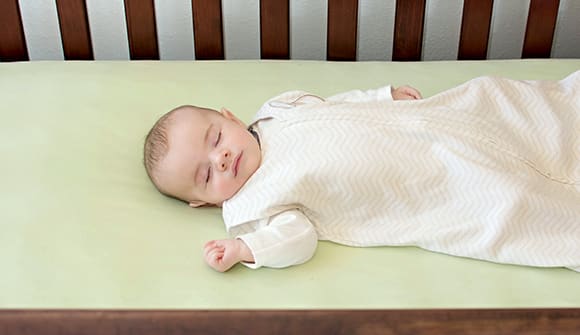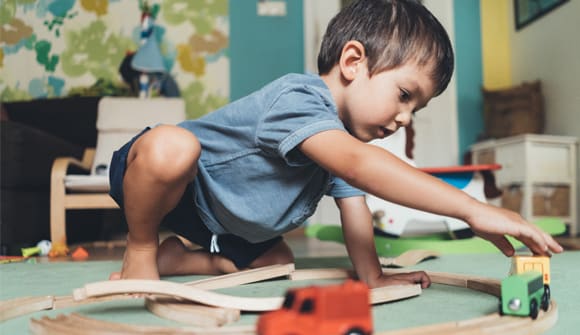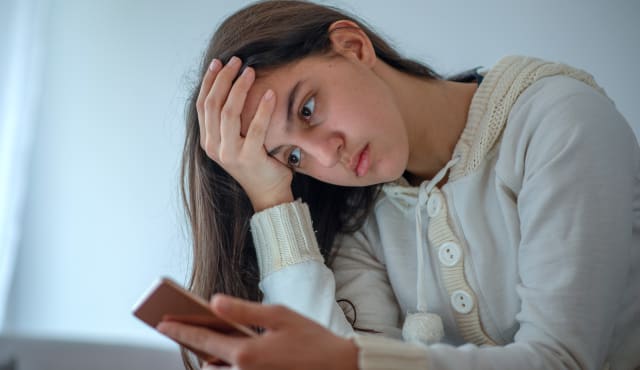Parents: Take 10
How to keep your cool with children and avoid the worst.
Article Author: Katie McPherson
Article Date:

Medical professionals know child abuse tends to rise after major world events, economic downturns and natural disasters. When coronavirus stay-at-home orders took effect, the Childhelp National Child Abuse Hotline reported a 20% increase in calls and four times the number of texts compared to the same time last year. Now, doctors are encouraging parents to break this cycle in 2020.
Sarah Robinson, PhD, is a licensed psychologist and board-certified behavior analyst at Baptist Behavioral Health. She says world events are out of everyone’s control, and the stressors that come with them can affect every part of daily life.
“Anything that causes disruptions to our routines and makes our lives more difficult can be stressful. When people are stressed, their tolerance for frustration can be lower, and at the same time they may have fewer psychosocial reserves to help them cope,” she said.
COVID-19 has changed so much about daily life, creating stressor after stressor for parents. Not only are they mastering working from home (or being an essential worker at a dangerous time), but they’re also trying to help with virtual school, keeping their family healthy and dealing with financial strain if they are experiencing pay cuts or job loss.
“We don’t have a precedent for this,” said Dr. Robinson. “Day care centers are closed. Many parents are either working as first responders or trying to adjust to working at home or are facing unemployment. Parents are juggling all these things while dealing with the same fears and uncertainty that we are all experiencing.”
While it’s understandable to get frustrated — and to reach an emotional breaking point sooner than usual right now — there are plenty of ways parents can cope without resorting to violence towards a child. It starts with compassion and self-care.
“The first thing I’ve been telling my patients during COVID-19 is to give themselves a break. It’s not going to be perfect. Parents need to have realistic expectations for what they can do, and what they can get their kids to do, and let some things go. This can help to reduce some of the pressure,” said Dr. Robinson.
And even if your kiddo hits full-on tantrum mode, as long as they’re not in any danger, it’s OK for a parent to step away if they need to collect themselves. Mom or Dad can take 10 minutes to regroup, drop and do 10 pushups, or take 10 deep breaths. Whatever “taking 10” looks like for you is great, so long as it helps you return to the situation calmly. This applies to dealing with older kids and teens, too, who may be just as quick to upset as their parents after all being stuck inside together for weeks.
“Parents can control their own behavior and how they respond. Sometimes parents think they have to do something to stop a tantrum or correct behavior right away. As long as a child isn’t doing anything potentially dangerous or harmful, it’s okay to just wait a little until the child starts to calm down and then redirect or distract them with something else,” Dr. Robinson explained. “This gives the parent time to calm down too. Even with older children and teens, parents can discuss behavior and any consequences after everyone is calm.”
While a sense of normalcy can be hard to come by right now, Dr. Robinson suggests spending extra time bonding with your children. Since you’re now acting as teachers (and they can feel like tiny, noisy co-workers), it’s important to remind each other that you’re a family first.
“With parents suddenly in the role of teachers, it’s important for parents and children to spend some time just having fun together to maintain a positive relationship,” she said. “Parents need to remember to take care of themselves too. This might be taking a few minutes to call family or friends, doing a meditation they find online, or even just taking a minute to take a few deep breaths. It sounds simple but it helps.”
Parents can find resources for positive parenting through the CDC, the American Academy of Pediatrics, and Wolfson Children’s Hospital.



